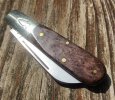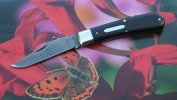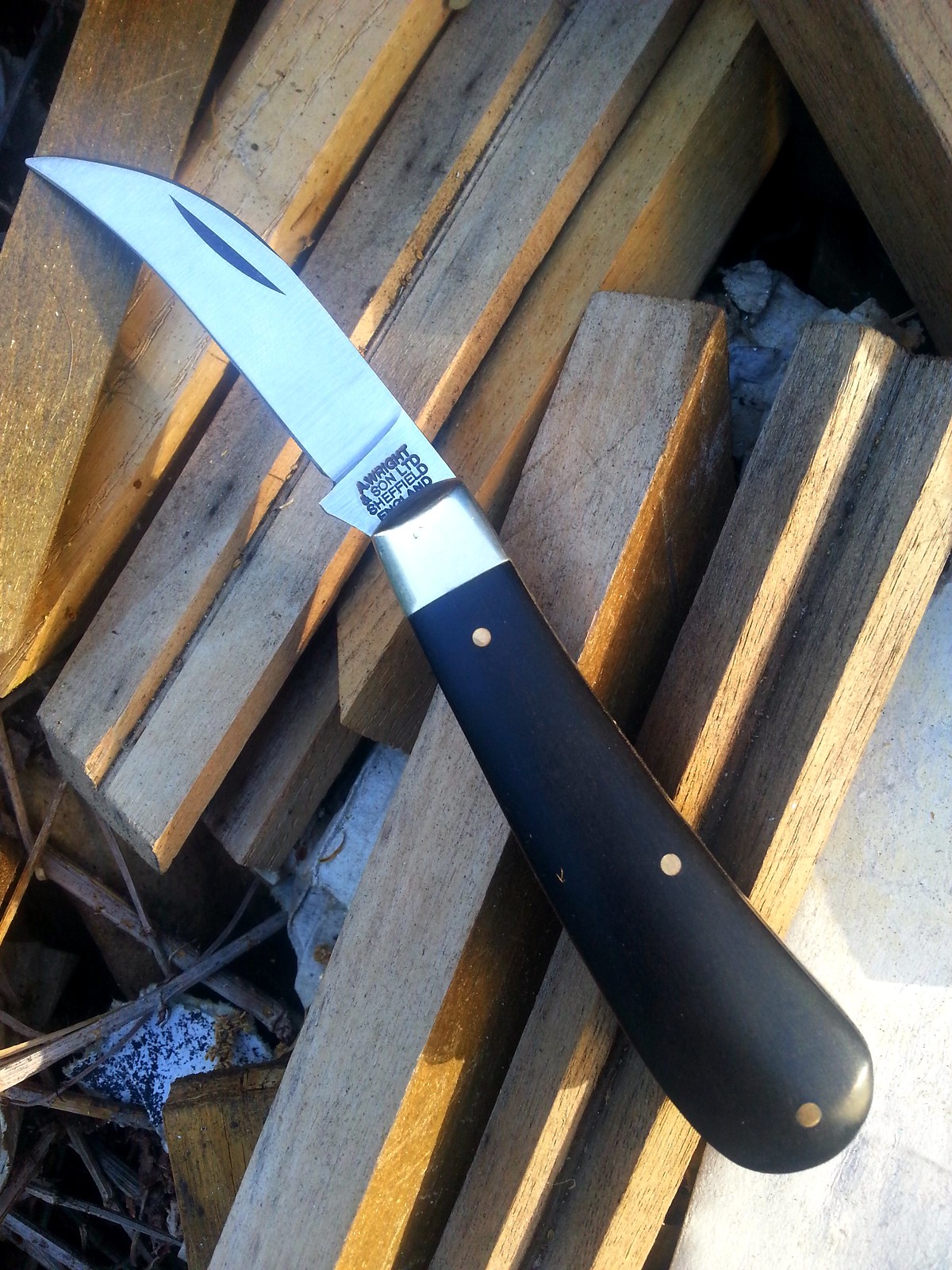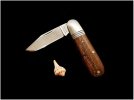-
The BladeForums.com 2024 Traditional Knife is available! Price is $250 ea (shipped within CONUS).
Order here: https://www.bladeforums.com/help/2024-traditional/
You are using an out of date browser. It may not display this or other websites correctly.
You should upgrade or use an alternative browser.
You should upgrade or use an alternative browser.
Wooden Wednesday - Traditionals only please
- Thread starter pistonsandgears
- Start date
- Joined
- Nov 30, 2016
- Messages
- 3,089
Fantastic. Congrats and what great fun to visit a maker like Evan.The highlight of my vacation in Sarasota area this week, Evan invited me to the Esnyx workshop. Im honored to be the new owner and carry his #44 cocobolo teardrop.





black mamba
Gold Member
- Joined
- Oct 21, 2009
- Messages
- 23,839
Thanks, redsparrow! Yeah, internet searches make me think this is another name for African Blackwood...or, Mpingo.
https://en.wikipedia.org/wiki/Dalbergia_melanoxylon
http://www.wood-database.com/african-blackwood/
- Joined
- Apr 16, 2012
- Messages
- 3,544
So Böker's grenadill is this also, yes?
lambertiana
Gold Member
- Joined
- Jul 7, 2000
- Messages
- 9,815
- Joined
- Jul 30, 2006
- Messages
- 44,851
So Böker's grenadill is this also, yes?
Yes, it is.
Boker calls it "grenadill". Same wood that GEC calls "African Blackwood".
I looked it up when I bought my Boker Peanut in this wood.
- Joined
- Jul 31, 2015
- Messages
- 2,556
I was indeed thinking of it instead of a #14. Thank you for a very valuable comparison!I think it's a well-made knife with good materials. 440C stainless. It is smallish - at about 3-3/8" closed...and thin. It's a little bigger than a GEC 14. Bolster seems a bit long, but I'm getting used to it.

- Joined
- Jul 31, 2015
- Messages
- 2,556
How is it different to ebony or is that another name for the same thing? I'm getting confused as to some similar 'looks' of wood.Yes, it is.
Boker calls it "grenadill". Same wood that GEC calls "African Blackwood".
I looked it up when I bought my Boker Peanut in this wood.
How is it different to ebony or is that another name for the same thing? I'm getting confused as to some similar 'looks' of wood.
African Blackwood is the original wood called “Ebony.”. The ancient Egyptians called it “Hbny” which is the origin of the word. In usage and appearance both woods are similar. African Blackwood tends to be denser and thus harder than Gabon (or Gaboon) Ebony but both characteristics can vary somewhat from sample to sample.
Relatively recent research, including DNA testing, places African Blackwood in the scientific Genus Dalbergia, which also includes Brazilian Rosewood, Cocobolo, (East) Indian Rosewood, and Kingwood, among others. Woods considered to be “true” Ebonies in modern times are in the Genus Diospyros which includes the previously-mentioned Gabon Ebony, Macassar Ebony, and the North American domestic hardwood: Persimmon (White Ebony).
- Joined
- Mar 25, 2012
- Messages
- 9,287
Looks like Rosie is keeping good company. That Case is a looker!I finally get to post in the Wooden Wednesday thread! With not only one, but two knives.


- Joined
- Mar 25, 2012
- Messages
- 9,287
- Joined
- Jul 31, 2015
- Messages
- 2,556
Thank you for the in depth reply!African Blackwood is the original wood called “Ebony.”. The ancient Egyptians called it “Hbny” which is the origin of the word. In usage and appearance both woods are similar. African Blackwood tends to be denser and thus harder than Gabon (or Gaboon) Ebony but both characteristics can vary somewhat from sample to sample.
Relatively recent research, including DNA testing, places African Blackwood in the scientific Genus Dalbergia, which also includes Brazilian Rosewood, Cocobolo, (East) Indian Rosewood, and Kingwood, among others. Woods considered to be “true” Ebonies in modern times are in the Genus Diospyros which includes the previously-mentioned Gabon Ebony, Macassar Ebony, and the North American domestic hardwood: Persimmon (White Ebony).
- Joined
- Apr 16, 2012
- Messages
- 3,544
- Joined
- Dec 1, 2016
- Messages
- 11,118
Looks like Rosie is keeping good company. That Case is a looker!
Thanks Kevin! They do make a handsome couple, don't they?
- Joined
- Oct 3, 2014
- Messages
- 7,462









